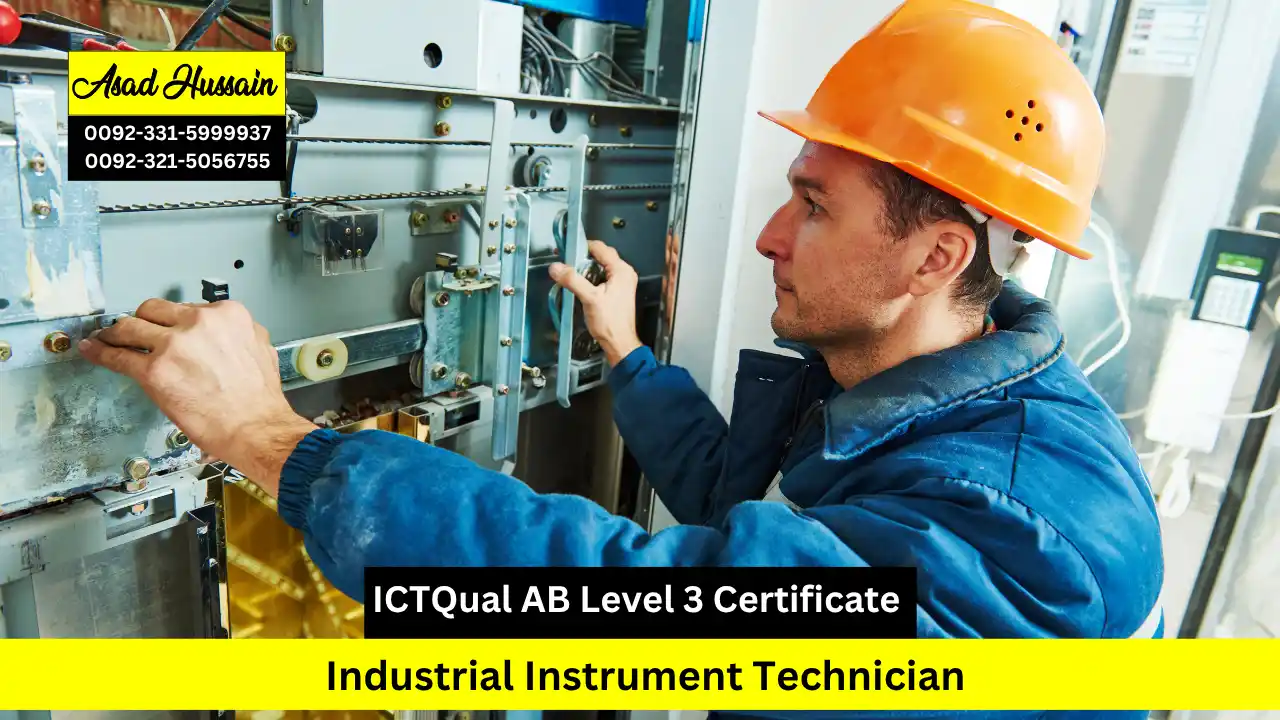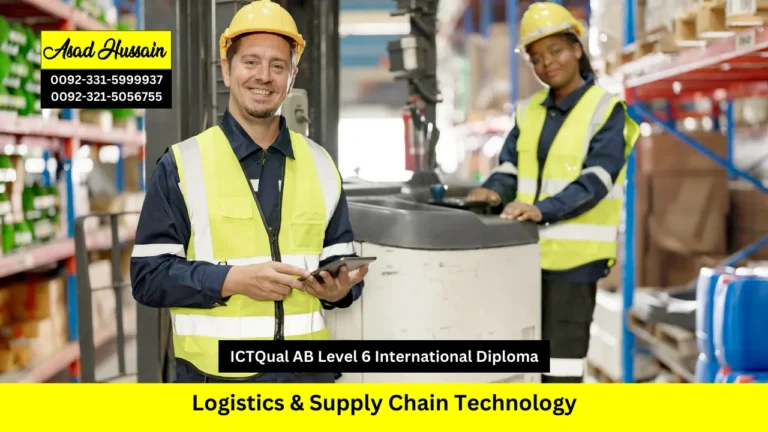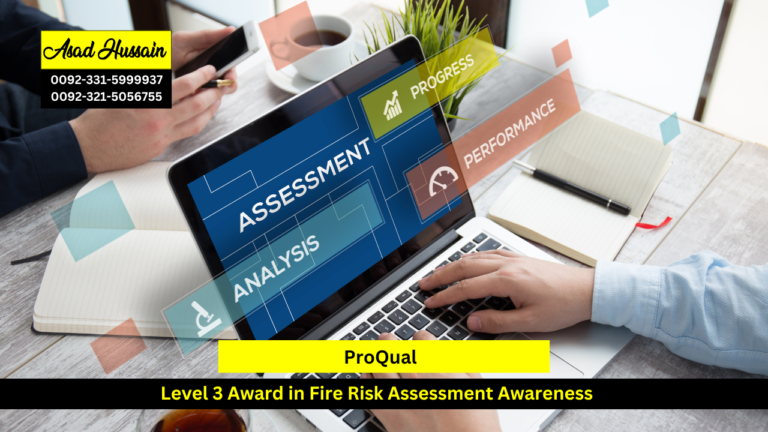The ICTQual AB Level 3 Certificate in Industrial Instrument Technician is a highly relevant qualification in today’s rapidly evolving industrial and manufacturing sectors. Industrial instrumentation plays a critical role in ensuring precise control, monitoring, and automation of complex industrial processes. This course provides aspiring technicians with the foundational knowledge and practical skills needed to excel in industrial instrumentation, making it ideal for those aiming to advance their careers in process industries, manufacturing plants, or automation sectors. High-demand skills such as calibration, maintenance, and troubleshooting of industrial instruments are central to this certification, positioning learners as valuable assets in technical workforces.
ICTQual AB Level 3 Certificate in Industrial Instrument Technician is skill development in instrumentation installation, calibration, and maintenance. Students will learn to work with instruments used in pressure, temperature, flow, and level measurement, gaining hands-on experience that enhances technical proficiency. The curriculum emphasizes problem-solving, critical thinking, and adherence to safety standards, ensuring graduates can handle complex instrumentation tasks with confidence. By mastering these practical skills, learners are well-equipped to contribute immediately to industrial projects and operational efficiency.
The ICTQual AB Level 3 Certificate in Industrial Instrument Technician, participants will possess a well-rounded understanding of industrial instrumentation, practical experience in maintenance and calibration, and the ability to implement industry standards safely. Graduates are prepared for roles such as Instrument Technician, Maintenance Technician, Process Control Technician, or Automation Support Specialist. With its focus on practical skills, industry compliance, and employability, this course is an essential step for anyone looking to advance their career in industrial instrumentation and automation.
Program Highlights
Mandatory Units
- Fundamentals of Industrial Instrumentation
- Process Variables: Pressure, Temperature, Flow, and Level
- Instrument Calibration and Testing Techniques
- Industrial Sensors, Transducers, and Control Valves
- Programmable Logic Controllers (PLCs) and Process Automation
- Maintenance, Troubleshooting, and Industrial Safety
The ICTQual AB Level 3 Certificate in Industrial Instrument Technician is designed to provide learners with the technical knowledge and practical skills required to work in industrial instrumentation and process control environments. To ensure that learners are fully prepared to benefit from this qualification, certain entry requirements must be met. These requirements help maintain the course’s academic integrity and ensure that participants have the foundational understanding necessary for successful completion.
Age Requirements:
- Applicants must be at least 18 years of age at the time of enrolment.
- This ensures that learners possess the maturity and responsibility needed to handle complex industrial systems, tools, and technical learning materials effectively.
Educational Requirements:
- Learners are generally required to have completed secondary education or an equivalent qualification, such as GCSEs or a recognized vocational certificate.
- A background in science, mathematics, or engineering-related subjects is highly recommended, as it provides a solid foundation for understanding measurement systems, sensors, and control processes covered in this course.
Professional Experience:
- While prior work experience is not mandatory, individuals with some exposure to industrial, electrical, or mechanical environments will benefit from a deeper understanding of instrumentation practices.
- Those currently working as maintenance assistants, plant operators, or technicians in process industries are also encouraged to apply, as this qualification can strengthen their technical credentials and support career advancement.
English Language Proficiency:
- Since the course materials and assessments are conducted in English, learners must demonstrate a reasonable level of proficiency in reading, writing, speaking, and understanding English.
- Applicants whose first language is not English should have completed an English language qualification equivalent to IELTS Level 5.0 or higher, ensuring they can engage confidently with technical content and assignments.
Learners who do not meet all formal entry requirements but possess relevant technical experience or prior learning may still be considered on a case-by-case basis. Successful completion of this qualification can also serve as a pathway to advanced studies, such as the ICTQual AB Level 4 Diploma in Industrial Automation and Control, further enhancing technical expertise and career opportunities in the field of industrial instrumentation.
The ICTQual AB Level 3 Certificate in Industrial Instrument Technician is designed to develop learners’ expertise in the core principles and applications of industrial instrumentation and process control systems. Upon completion, learners will have gained both theoretical knowledge and practical competence required to operate, maintain, and troubleshoot a wide range of industrial instruments. The course emphasizes measurable learning outcomes aligned with current industry standards, ensuring graduates are well-prepared for technical roles in manufacturing, process, and automation industries.
Fundamentals of Industrial Instrumentation
• Understand the basic principles and functions of industrial instrumentation systems used in various industrial sectors.
• Identify and describe different types of measurement instruments and their operational characteristics.
• Apply the principles of measurement accuracy, precision, and reliability in industrial processes.
• Demonstrate knowledge of instrumentation symbols, diagrams, and documentation used in technical settings.
• Recognize the role of instrumentation in process optimization and industrial automation.
Process Variables – Pressure, Temperature, Flow, and Level
• Explain the key process variables and their significance in industrial operations.
• Identify and compare instruments used to measure pressure, temperature, flow, and level in industrial environments.
• Interpret readings from various measuring instruments and ensure accurate data collection.
• Apply appropriate methods for monitoring and controlling process variables to maintain system efficiency.
• Evaluate the effects of process variables on overall system performance and safety.
Instrument Calibration and Testing Techniques
• Understand the purpose and importance of calibration in maintaining instrument accuracy and reliability.
• Perform standard calibration procedures using calibration tools and reference instruments.
• Record, interpret, and verify calibration results in compliance with industry standards.
• Identify common errors and deviations during calibration and apply corrective measures.
• Demonstrate knowledge of quality assurance protocols in instrument calibration and testing.
Industrial Sensors, Transducers, and Control Valves
• Describe the working principles and classifications of sensors, transducers, and control valves used in process industries.
• Select appropriate sensors and transducers for specific industrial applications.
• Install, configure, and test control valves to ensure efficient process control.
• Troubleshoot issues related to sensors and control valves using standard diagnostic methods.
• Evaluate the role of feedback and control mechanisms in maintaining process stability.
Programmable Logic Controllers (PLCs) and Process Automation
• Explain the basic structure and operation of Programmable Logic Controllers (PLCs) in automation systems.
• Develop simple PLC ladder logic programs for process control applications.
• Interface PLCs with sensors, actuators, and other control devices.
• Apply automation principles to enhance productivity and operational efficiency.
• Ensure safety and reliability in PLC-based automation systems through proper programming and maintenance.
Maintenance, Troubleshooting, and Industrial Safety
• Perform preventive and corrective maintenance on industrial instruments and control systems.
• Diagnose and resolve common faults and malfunctions in instrumentation systems.
• Apply systematic troubleshooting techniques using diagnostic tools and test equipment.
• Adhere to industrial safety procedures and standards during installation, maintenance, and repair activities.
• Demonstrate understanding of health, safety, and environmental regulations relevant to industrial instrumentation.
The ICTQual AB Level 3 Certificate in Industrial Instrument Technician, learners will have developed the technical, analytical, and safety competencies essential for careers in instrumentation and control. Graduates will be equipped to work as Instrument Technicians, Process Control Technicians, or Maintenance Engineers, contributing to the operational excellence of industrial and manufacturing facilities worldwide.
The ICTQual AB Level 3 Certificate in Industrial Instrument Technician is an internationally recognized qualification designed for individuals aspiring to build a professional career in the field of industrial instrumentation, process control, and automation. As industries continue to advance technologically, the need for skilled instrument technicians capable of ensuring operational efficiency, accuracy, and safety has become increasingly critical.
Industrial Instrumentation Technicians and Maintenance Professionals
• Individuals currently working as or aspiring to become Instrument Technicians, Process Technicians, or Maintenance Engineers.
• Professionals involved in installing, repairing, and maintaining industrial measurement and control instruments.
• Technicians seeking to upgrade their skills to meet international standards in instrumentation and process automation.
• Learners aiming to enhance their understanding of sensors, transducers, control valves, and industrial measurement systems.
• Workers dedicated to ensuring precision, reliability, and safety within industrial processes and manufacturing systems.
Process and Automation Engineers
• Engineers and technicians engaged in process automation, industrial control systems, and instrumentation engineering.
• Professionals responsible for designing, operating, and optimizing automated industrial systems and production processes.
• Individuals aiming to strengthen their technical expertise in Programmable Logic Controllers (PLCs) and process automation.
• Learners seeking to improve their ability to integrate mechanical, electrical, and control systems in industrial environments.
• Engineers aspiring to ensure efficiency, quality, and accuracy across complex automated operations.
Calibration and Testing Specialists
• Professionals responsible for instrument calibration, performance verification, and testing of industrial systems.
• Individuals involved in ensuring compliance with international calibration standards and quality assurance protocols.
• Learners aiming to develop strong practical skills in calibration, measurement accuracy, and fault detection.
• Technicians seeking to perform precise adjustments and testing procedures across multiple industrial instruments.
• Professionals dedicated to improving the reliability and efficiency of industrial monitoring and control equipment.
Industrial Operators and Plant Supervisors
• Operators and supervisors working in power plants, oil and gas facilities, manufacturing industries, and chemical plants.
• Individuals responsible for monitoring process variables such as pressure, temperature, flow, and level in industrial systems.
• Professionals aiming to ensure optimal equipment performance through regular maintenance and troubleshooting.
• Supervisors committed to maintaining operational safety, environmental compliance, and productivity in industrial facilities.
• Learners interested in advancing their technical knowledge to lead instrumentation and maintenance teams effectively.
Technical Trainees and Vocational Learners
• Students and trainees seeking to enter the industrial instrumentation field with a solid technical foundation.
• Learners pursuing vocational or technical qualifications in instrumentation, process control, or automation.
• Individuals aspiring to gain hands-on experience and practical knowledge applicable to real-world industrial settings.
• Beginners looking to understand the core concepts of industrial measurement, calibration, and safety.
• Trainees aiming to build a strong career pathway in instrumentation, maintenance, or industrial technology sectors.
Career-Focused Learners and Future Industrial Leaders
• Individuals seeking to build long-term careers in industrial instrumentation, process automation, or maintenance management.
• Professionals motivated to progress toward senior roles in instrumentation, calibration, and process control engineering.
• Learners aiming to acquire globally recognized credentials that enhance employability and career advancement.
• Career-oriented individuals dedicated to mastering practical skills that improve industrial system performance and reliability.
• Future leaders aspiring to contribute to innovation, efficiency, and sustainability in industrial operations worldwide.
The ICTQual AB Level 3 Certificate in Industrial Instrument Technician is ideal for individuals passionate about precision, technology, and industrial excellence. Graduates will gain the knowledge and practical experience necessary to install, maintain, and troubleshoot advanced instrumentation systems used in industries such as manufacturing, oil and gas, power generation, and automation.







